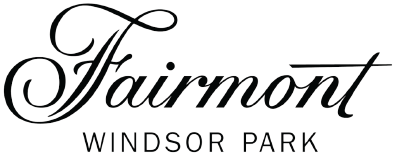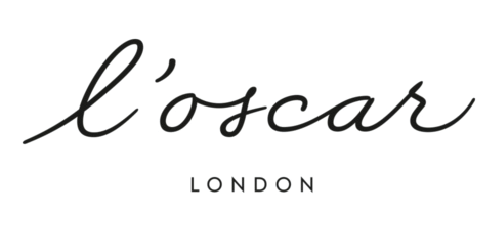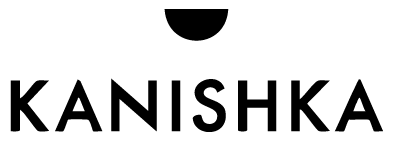
Alternative investments are an attractive option if you’re looking to diversify your portfolio. Stocks and bonds aren’t for everyone - and if you’re a whisky lover, whisky investment may be the right avenue for you.
But what exactly is whisky investment, and how do people invest in whisky? That’s what we’ll be exploring in this helpful guide. Read on to learn more about the whisky market, the pros and cons of whisky investment, and other alternative investment opportunities to consider.
What is Whisky Investment?
If you’re considering investing in collectable whisky, it’s important to understand what whisky investment entails. Whisky investment involves acquiring bottles or whisky casks with the expectation that they’ll increase in value over time. Ultimately, it involves buying and selling whisky.
You can opt for limited-edition releases, rare bottles, or whisky from popular distilleries or auction houses. Unlike stocks or bonds, whisky is a physical asset, and its value can be influenced by factors such as brand reputation, rarity, and the whisky maturation process.
There are two main types of whisky that dominate the whisky market - malt whisky and grain whisky. Grain whisky can be made from any grain, whether it be barley, corn, rye or wheat. Single malt whisky, however, is produced from malted barley in a single distillery.
Single malt whiskies can be a good choice of investment due to their limited releases and collector’s value. However, blends tend to be a more accessible option and are often more affordable.
One of the key aspects that can determine the value of cask whisky is the maturation process. Whisky casks can affect the whisky’s flavour, aroma, and overall quality.
As whisky matures, its rarity and desirability grow - which means that its value grows. If you’re considering investing in whisky, be sure to consider the age of the whisky, the type of cask used, and the conditions of maturation when evaluating investment opportunities.
The Pros of Whisky Investment
First of all, whisky has the nickname ‘liquid gold’ for a reason. This is because as whisky ages, it can turn into a profitable asset. Well-chosen whiskies can appreciate in value over time, offering a potential return on your investment.
Another added benefit of whisky cask investments is that they typically have a low correlation with traditional financial markets. Investing in whisky can be a great way to add a level of diversification to your portfolio.
Likewise, it can be a great way to combine passion with profit. If whisky is something you enjoy, or have a great interest in, why not consider making money off it? Having a solid understanding of whisky and the whisky market can only work in your favour.
The Cons of Whisky Investment
The whisky market can be volatile. It is influenced by factors such as changing consumer preferences and economic conditions - and profit is never guaranteed. Additionally, whisky is not as liquid as traditional investments - it can take some time before whisky is ready to sell.
In some cases, it can be over 30 years before whisky reaches optimal maturity. Most collectable bottles of whisky are at least 10 years old - and the general rule of thumb is that the older the whisky, the more valuable it is.
Rare whisky investment also requires a high level of expertise - you’ll need a solid knowledge of the market, the maturation process, as well as the factors that can influence the value of whisky.
How to Invest in Whisky
The first step to take when buying whisky for investment is to research the whisky industry and market. Stay informed about the latest trends, distilleries, and types of whiskies in the market. To start buying whisky, explore online retailers, auctions and investment platforms.
If you’re a beginner, consider starting with well-known brands and then gradually exploring niche distilleries. Some investors opt to invest in entire casks of whisky, which can be a long-term commitment but may offer higher returns.
Be sure to assess the quality of the whisky, considering factors such as brand reputation, distillery history, and expert reviews. Storage is key when it comes to whisky investment.
Keep your bottles upright in a cool, dark place, shielding them from temperature changes. If possible, invest in a whiskey cabinet or shelf. When it’s time to sell the cask or whisky bottles, consider online platforms, speciality retailers, or local auctions.
Make sure that you keep the original packaging and documentation for authenticity. Likewise, regularly track whisky prices to identify potential buying or selling opportunities.
Other Alternative Investments to Consider
Although whisky investment can be a great choice, it’s not for everybody. Additionally, diversifying into other alternative assets is a great way to mitigate risk. Alternative investments include a range of options beyond traditional avenues such as stocks and bonds.
One of the key alternative investments to consider is real estate - this allows you to own physical property for potential appreciation. Although this is a more ‘hands-on’ option, it can be a great way to generate monthly income through tenant rental payments.
Another option is commodities. This involves trading tangible goods like gold or oil, providing a hedge against inflation. It could also be worth considering hedge funds - this is when you pool capital from various investors and employ a range of strategies to generate returns.
Finally, art and collectables are tangible and enjoyable alternative investments to consider. Art has the potential to increase in value over time - and it’s a great way to diversify your portfolio. Much like whisky investment, art investment is a great way to combine passion with profit. This is something we can help with at Grove Gallery.
Invest in Art With Grove Gallery
At Grove Gallery, we have a carefully curated selection of artworks from a combination of emerging and established artists. Whether you’re a fan of Picasso’s artwork, you’re a pop art fan, or modern art is your forte, we have something for everyone.
Art investment can be a great way to diversify your portfolio - it can complement traditional portfolios as well as other alternatives such as whisky. Additionally, the art market has historically withstood periods of economic uncertainty and can be a great investment during times of recession.
You can invest in art with Grove Gallery with a minimum of £3,000. Liaise with our expert art advisors to make the most out of your investment, and generate up to 12% per year through art investment alone. Download our guides, explore our collection, and begin your investment journey today.






